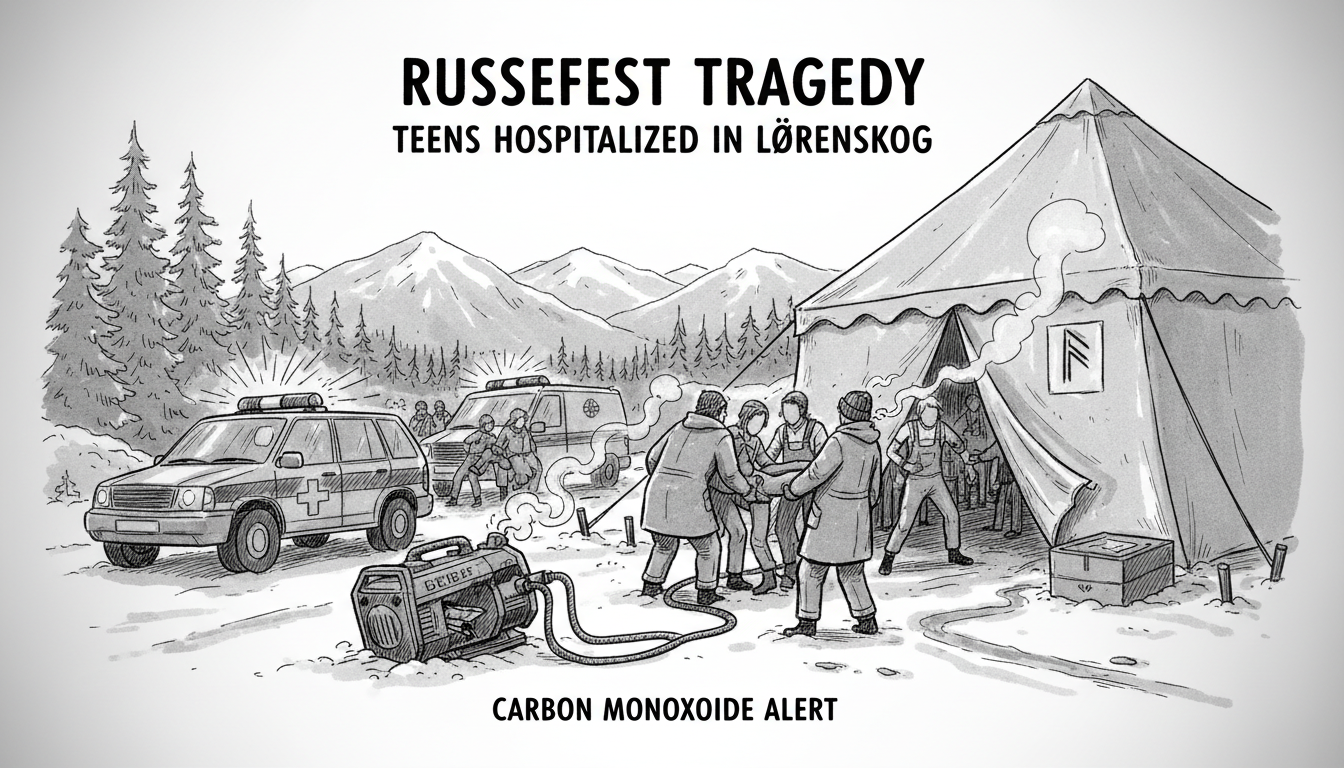Several Norwegian teenagers required hospital treatment following a traditional graduation celebration in Lørenskog. Emergency services transported multiple young people to Akershus University Hospital with suspected carbon monoxide poisoning.
The incident occurred during a russefest, an annual tradition where high school graduates celebrate their completion of secondary education. These celebrations often involve parties and gatherings that can last for weeks.
Lørenskog Mayor Amine Mabel Andresen confirmed authorities received notification about the incident. She stated the event took place in the municipality and involved a diesel generator that apparently caused the health emergency.
Officials have not disclosed the exact number of affected teenagers. Hospital representatives declined to comment on patient cases when contacted by media.
Police operations manager Rune Isaksen from the Eastern Police District said officers are gathering information about what happened. No criminal investigation has been launched at this time. Police need additional details before determining whether to pursue formal proceedings.
The mayor issued urgent advice to parents of teenagers who attended the celebration. She emphasized that any young person experiencing symptoms should immediately visit emergency medical services. Carbon monoxide poisoning requires prompt treatment to prevent serious health consequences.
This incident highlights ongoing concerns about safety during traditional Norwegian graduation celebrations. Russefeiring traditions have evolved over decades, with current celebrations typically occurring in April and May. Students often organize elaborate parties, bus decorations, and group activities.
Norwegian authorities have repeatedly addressed safety issues surrounding these celebrations in recent years. Previous incidents have involved alcohol-related accidents, transportation safety concerns, and now apparent carbon monoxide exposure.
Carbon monoxide poses particular danger in enclosed spaces or poorly ventilated areas. Diesel generators emit the odorless, colorless gas that can quickly reach dangerous concentrations. Symptoms include headache, dizziness, weakness, nausea, and confusion.
Local officials face ongoing challenges balancing cultural traditions with public safety requirements. The russefeiring period represents a significant rite of passage for Norwegian youth, but each year brings safety concerns that require municipal attention.
Medical professionals recommend that anyone exposed to generator exhaust seek immediate evaluation. Early treatment can prevent long-term neurological damage from carbon monoxide exposure.
Parents and community members await further details about the teenagers' conditions and the specific circumstances that led to the hospitalizations. The incident serves as a reminder that traditional celebrations require careful planning and safety precautions.

